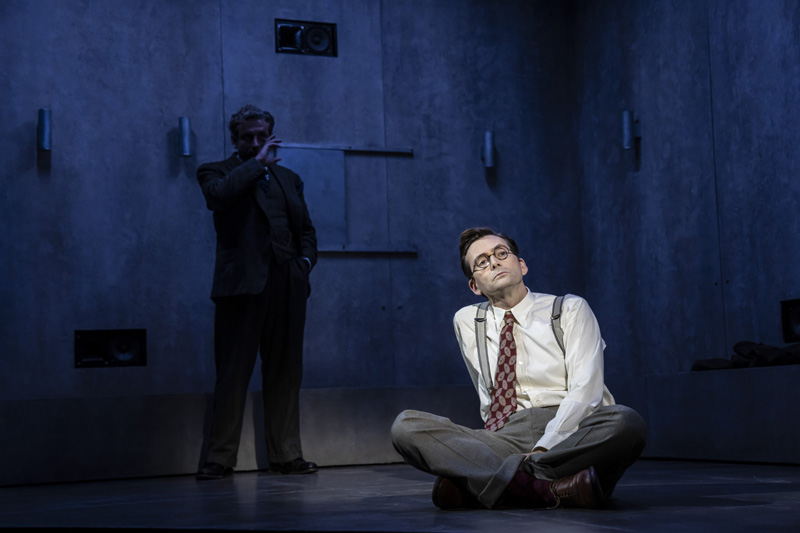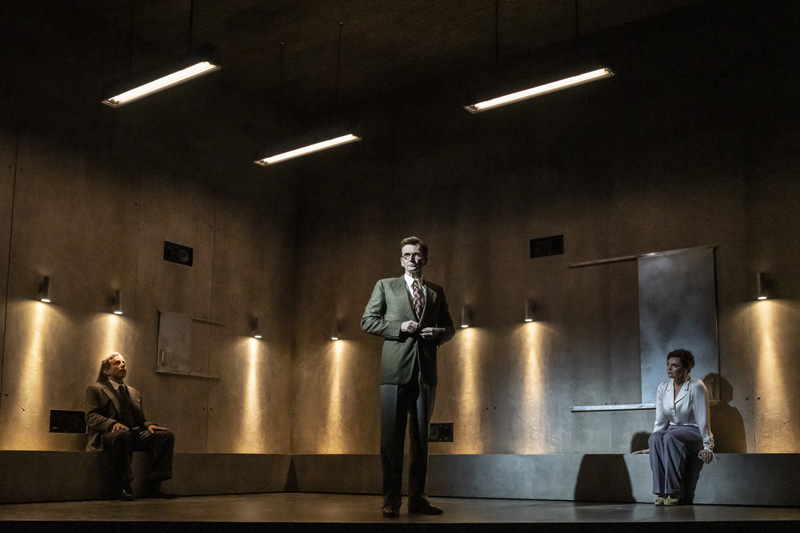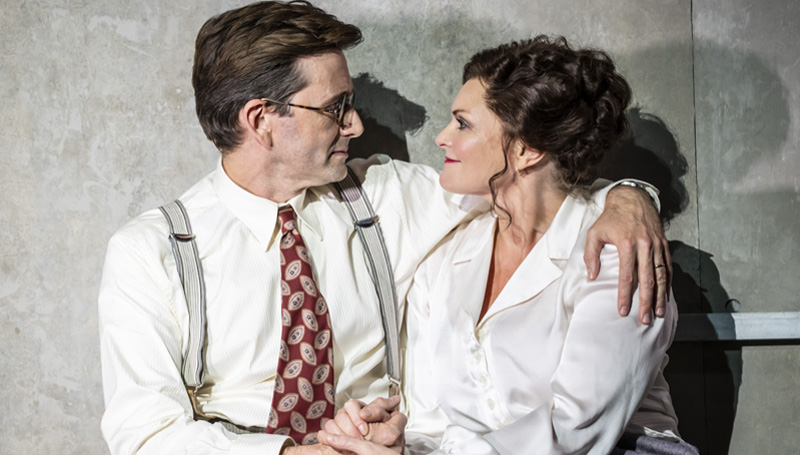“Good” – Harold Pinter Theatre
Neil Dowden in the West End
20 October 2022
Twice delayed by Covid, Dominic Cooke’s revival of C.P. Taylor’s 1981 play Good has finally opened in the West End. The continuing commitment of star David Tennant – making his return to the stage after five years – is a tribute to a work that engages seriously with the ethical dilemmas that normally decent people face when their country is taken over by a pernicious totalitarian regime. The play may be set at the time of the rise of Nazism and anti-Semitic persecution in pre-war Germany, but the tough questions it poses about personal responsibility and moral compromise are just as relevant now.

David Tennant as Halder.
Photo credit: Johan Persson.
Good begins in 1933 – just after the election of Adolf Hitler as chancellor – and continues through increasing repression of the Jewish community including Kristallnacht and the involuntary euthanasia programme, which prefigured the Final Solution in the extermination camps. In the foreground of this historical backdrop, Tennant plays German literature professor Halder, a liberal, cultured family man who becomes embroiled in the dark heart of Nazism through a series of moral concessions that lead to a vicious cycle of barbarism.
The subtlety of Taylor’s writing is in showing how this descent is incremental. At the outset, Halder seems a “good” man in a difficult situation: married to Helen, a musicologist who is struggling to cope, with three young children plus a blind mother with dementia to look after, he is forced to join the National Socialist Party to keep his academic job. He tells his Jewish psychoanalyst friend Maurice that the abhorrent anti-Semitism is a brief phase that will pass. But Halder abandons his family in Frankfurt to go and live in the countryside with a young student he has fallen for, while he refuses to try to help Maurice escape Germany and later cuts him off. Further, he joins the SS to advance his career as he becomes a willing accomplice in implementing the Nazi ideology that he formerly despised.
Taylor’s antihero is a conventional, law-abiding man who is not intrinsically “bad” but is a moral coward who passively takes the easy course, lacking genuine belief in anything other than his own self-centred happiness. His narcissism means he is able to detach himself from others’ suffering and the growing brutality around him: the music that constantly plays in his head is a way of escaping external reality, while he is happy for “decadent” books to be burned as long as he can keep his own collection.

Elliot Levey, David Tennant and Sharon Small.
Photo credit: Johan Persson.
Cooke’s stripped-back, claustrophobic production does not let go its grip in its focus on the moral philosophical issues involved, reducing the cast to three (always on stage) with the other two actors multi-roling, as scenes flow into each other seamlessly. The characters are entrapped in Vicki Mortimer’s concrete bunker-like design, with one hatch opening to release a flood of books which are then fed into a fire revealed through another hatch – until a shocking coup de théàtre at the end. Zoe Spurr’s expressionist lighting dramatically marks scene changes, Tom Gibbons’ atmospheric sound reaches a climax with the terrifying breaking of glass accompanied by screams, while the mixture of classical and popular music we hear attunes us to Halder’s evasive consciousness.
Tennant brilliantly conveys how Halder’s urbanely affable persona masks the moral vacuum of a man in denial, as his repeated self-justifying equivalences lead him towards a hellish destination. Elliot Levey and Sharon Small provide strong support in a variety of roles, with the former’s poignantly anxious Maurice contrasting with a clinically efficient Nazi bureaucrat, and the latter moving skilfully between Halder’s mother, wife and girlfriend. The constant quick change-over of characters can be disorientating, but it does help make for an intensely concentrated experience.









